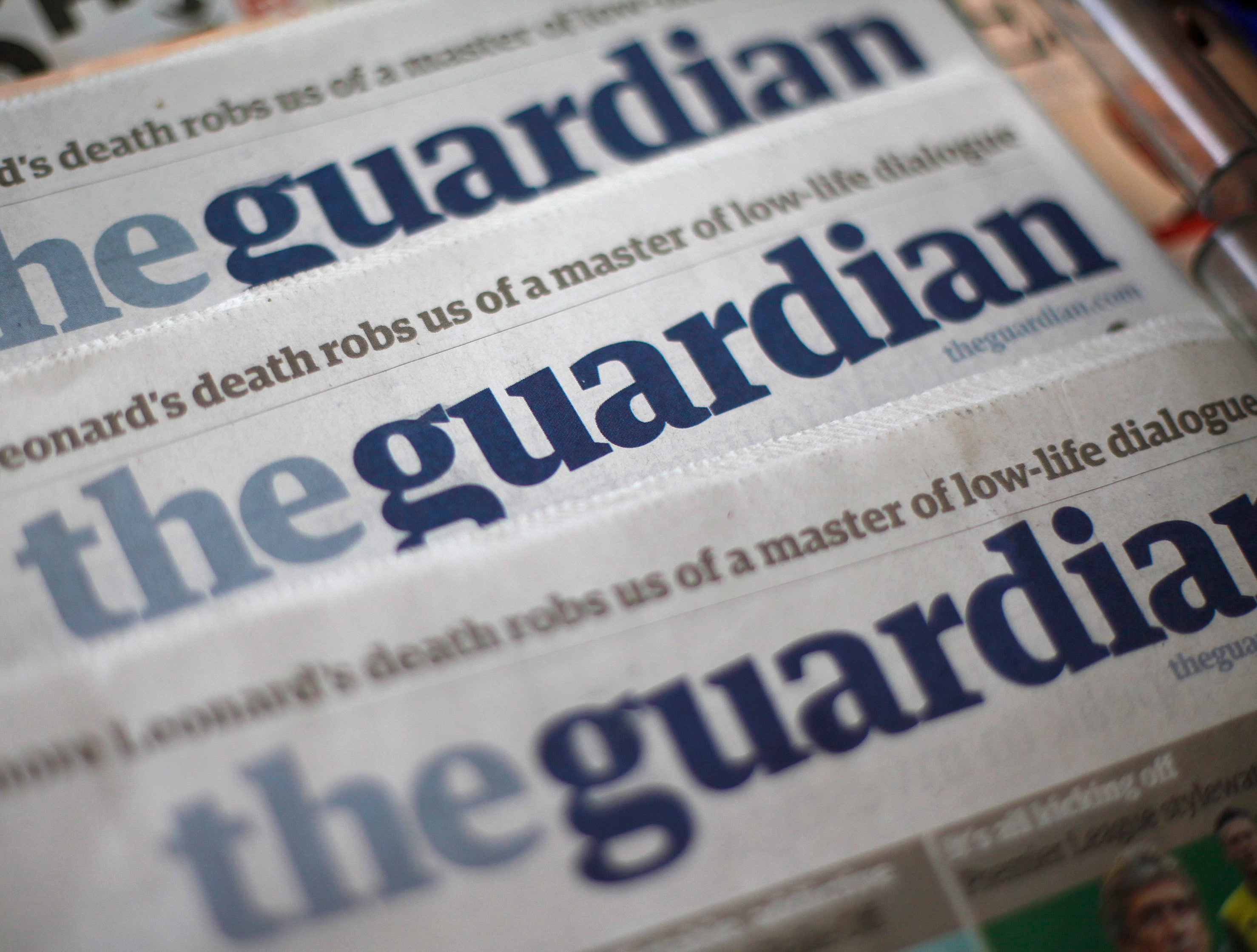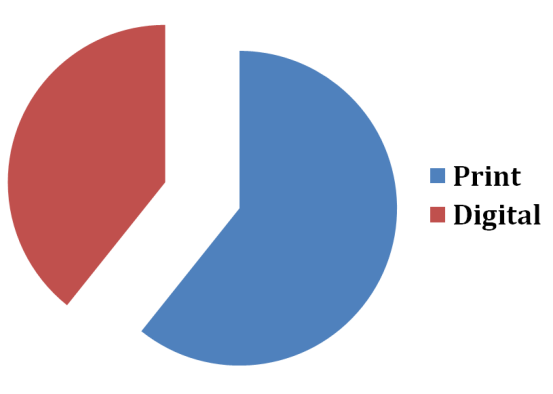
Guardian Media Group has posted a decline in digital revenue for the last financial year and a pre-tax loss of £173m.
The Guardian and Observer publisher had hoped that digital income would exceed print for the first time in the year to the end of March 2016 and had previously budgeted for a figure in excess of £100m for this period.
But instead digital income has declined from £83.8m in the year to March 2015 to £81.9m, figures released today show. Overall revenue fell from £217.5m in 2015 to £209.5m for the last year.
Guardian and Observer print revenue declined from £132.6m in 2015 to £126.3m. It is now more than five years since The Guardian declared it was going “digital first”.

Guardian Media Group’s overall revenue split between print and digital for 2015/16
The company reported a trading loss of £68.7m (earnings before interest, tax, deductibles and amortisation). The higher pre-tax loss figure also includes a reduction in the value of GMG’s stake in business publisher Ascential and £20.6m in redundancy payouts.
GMG said its endowment fund dropped by £73.3m from £838.3 million to £765 million over the last financial year.
The only business which GMG runs, Guardian News and Media, made an operating loss of £19.1m in the year to March 2015. There is no direct comparison available this year.
The annual report shows that total staff numbers increased to 1,813 for the year to March 2016, up from 1,650 a year earlier. These included 1,050 editorial and production staff (up from 925).
Some 268 staff have taken voluntary redundancy, including 69 in editorial.
The impact of voluntary redundancies will take effect in next year’s figures and are planned to take staff numbers at Guardian News and Media down to 2011/2012 levels.
The Guardian now claims to have around 50,000 readers who have signed up to become paying “members”.
If they were paying the minimum £49 a year membership charge, this would make for income of £2.5m a year. There are a further 150,000 non-paying members.
A spokesperson said there are a further 180,000 who pay some sort of print or digital subscription.
Guardian Media Group said it plans to reach break-even in three years.
It says this will be achieved by:
- Enhancing the Guardian’s membership offering
- International growth in the US and Australia
- Better data management
- Restructuring the less profitable parts of the company.
Chief financial officer Richard Kerr said: “The group operates in a challenging sector which is experiencing both structural and cyclical changes.
“There is an accelerating rate of migration from print to online, and from desktop browser to mobile consumption of news, with resultant revenue implications for both print and digital business models.”
The group’s total net assets were said to be £898.3 million on 3 April 2016, compared with £1.1bn a year earlier.
Chief executive David Pemsel received pay and pension of £529,000. Pemsel was appointed on 1 July on a salary of £600,000.
Editor Katharine Viner’s total remuneration was £307,000 (compared with £396,000 for her predecessor Alan Rusbridger). She took over from Rusbridger in June 2015.
Guardian Media Group chairman Neil Berkett said: “These full-year financial results show the challenging market conditions in which all news organisations are now operating.
“Under the leadership of Katharine and David the group has committed to a three-year business plan which will address those challenges head on, addressing costs whilst growing new revenues in order to protect Guardian journalism in perpetuity.”
Pemsel said: “Faced with a volatile advertising market, we have taken decisive action to control our cost base, reduce headcount, and grow our revenues around membership, branded content, video and data.
“We are on track to deliver a 20 per cent reduction in our cost base over the next three years, while our unique ownership structure will allow us to continue to invest in the world-class journalism that these numbers clearly show our international audiences want.
“We have a hugely talented workforce and a strong global brand with well-established core values and we remain committed to achieving financial and editorial sustainability through our three-year business plan.”
Email pged@pressgazette.co.uk to point out mistakes, provide story tips or send in a letter for publication on our "Letters Page" blog
